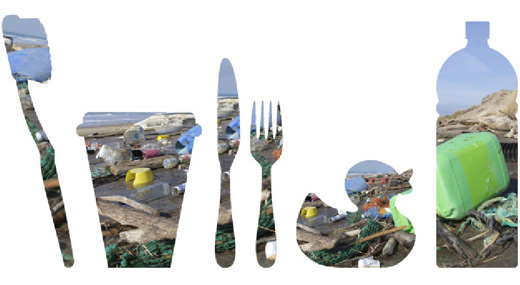Ocean plastic waste causes $13bn of damage a year, scientists say
Plastic waste floating in the world’s oceans causes $13 billion of environmental damage annually, a new report has revealed. Entitled ‘Valuing plastic’, the report was compiled by the Plastic Disclosure Project (PDP) in partnership with natural capital analysts Trucost and UNEP. Focusing specifically on the consumer goods industry, it calculates the volume of plastic used by 16 major companies and clearly highlights the business case for measuring, managing and disclosing plastic use.
During a public webinar on 9th July 2014, PDP Director Andrew Russell said that defining a strategy to derive real business benefits from smarter plastic use started with identifying the risks and opportunities in a structured way. He explained that PDP wanted to help companies manage plastic in the same way that they already address aspects such as carbon, water, forestry and social value. And companies are already benefitting commercially from taking a smarter approach to plastics, he confirmed.
According to Trucost, the total natural capital cost of plastic in the consumer goods industry is more than $75bn each year. This spans environmental impacts including the harm done by plastic litter to marine ecosystems and the loss of valuable resources when plastic waste is sent to landfill.
Among the key findings, the report revealed that plastic use in the food sector has the largest impact in absolute terms, responsible for almost a quarter of the total natural capital cost. The most significant downstream impact of plastic use by the consumer goods sector is marine pollution, while the biggest upstream impact is greenhouse gas emissions released from producing plastic feedstock, which is responsible for almost a third of the total natural capital cost.
The impacts of plastic also vary around the world. Companies face higher natural capital costs if they purchase or dispose of plastic in Asia compared to North America, Europe or Oceania due to the higher pollution intensity of manufacturing in Asia and its lack of adequate waste management facilities.

Trucost’s Alistair MacGregor, who also spoke at the webinar, explained that current levels of disclosure are low and often motivated more by regulatory pressure than ‘material’ issues. The first PDP discloser is UK-based cosmetics company LUSH, which has now completely banned small plastic particles from its products.
The report recommends that progressive companies can improve management of plastic and win customer loyalty by developing closed loop models that recover resources and materials. For example, Unilever has made $250,000 of savings by using 15% less plastic packaging in its Dove products.
Similarly, Dell’s Environmental Affairs Director Scott O’Connell, said that Dell had goals to recover 2bn pounds of e-waste and use 50m pounds of recycled plastics in its products by 2020. Indeed, Dell has just launched the first ever PC made using third party certified closed loop plastic. And with recycled plastics becoming more cost-effective, O’Connell anticipates there will be an opportunity to ensure that ‘closed loop’ products deliver cost as well as environmental benefits.
“It’s great to see companies across the consumer goods sector tapping into innovative solutions for cutting plastic waste and incorporating recycled plastic in their products,” says Nigel Hunton, MBA’s CEO. “Companies are increasingly asking us about the business and sustainability benefits of using high quality recycled plastics in their products and they’re quick to seize on the opportunity to reduce their carbon footprint.”
In the long term, the report concludes, progress on plastic, improved waste management infrastructure and more effective legislation will require collaboration between multiple stakeholders, particularly in developing countries.
To read more about the PDP report, please visit Plastic Disclosure Project. To learn why MBA’s sustainable plastic polymers use just 20% of the energy it takes to produce virgin plastic, please visit www.mbapolymers.com.

